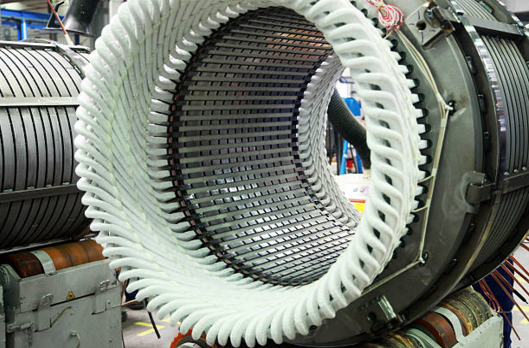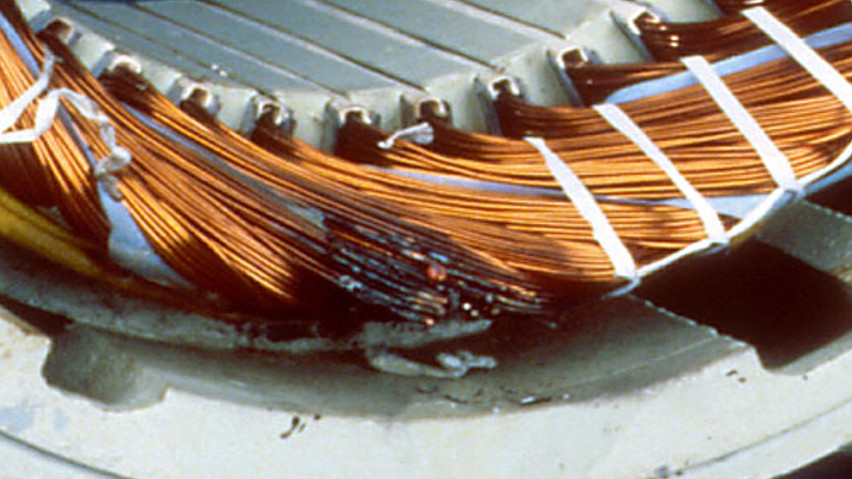If you can peek into the housing and see the coils, Form Wound would have square or rectangular conductors pressed into precise neat shapes and often vacuum impregnated insulation around them. If you see small round wires wrapped in what looks like sting or tape it's random wound.
Form wound:
Random wound (with some damage):
200HP would be a generous lower limit of size to find form wound. It's usually motors that are "above NEMA frame", generally equating to over 250HP at 460V, and even then it's not common until you hit maybe 500HP and up.


